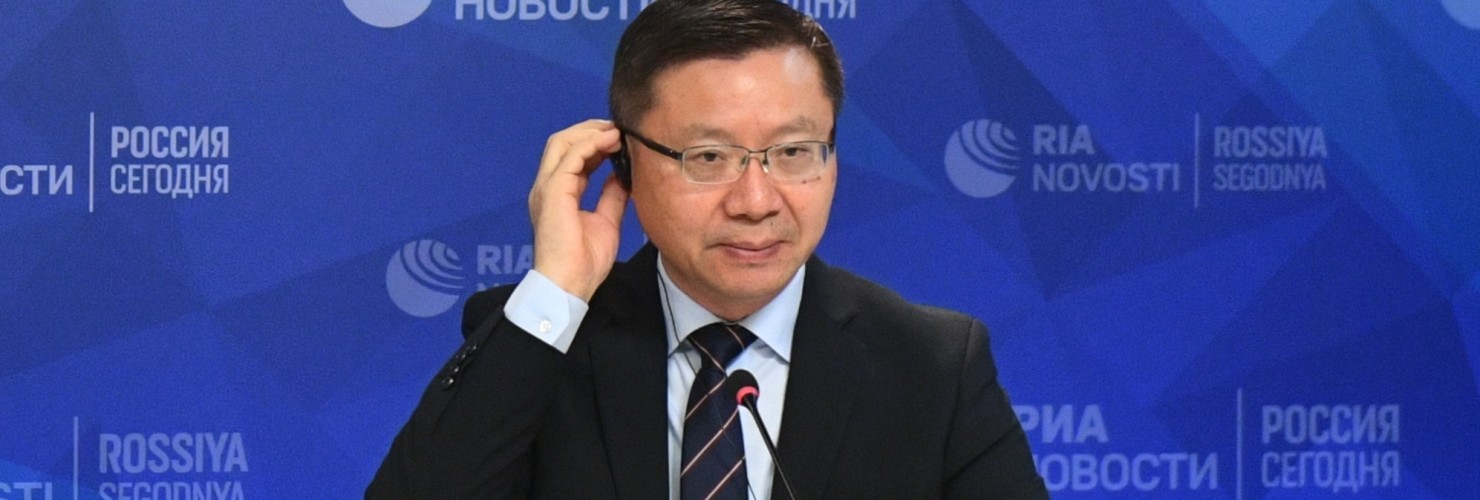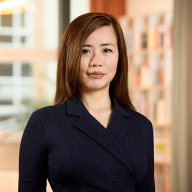

“Westernized” patriots defend China’s model
Worldly Chinese super influencers are keen to re-shape the world’s thinking about the West, says Valarie Tan. This is the fourth in a series of short analyses that looks at China’s systemic competition and normative rivalry with the US and the EU. A look beyond the Beijing leadership shows how far debates about the features of political systems and the power to interpret events reach into Chinese society – and possibly shape the country’s actions.
“The East is rising, the West is on the decline” (东升西降) is a dictum used by Chinese nationalists like security tsar Chen Yixin, the Secretary-General of China’s Central Commission for Political and Legal Affairs. It is also a favorite of influential bloggers and scholars, some bilingual in English and Chinese after studying in Europe or the US. These super influencers debate with Western scholars and are given space by Western media. With millions of social media views, they have found audiences inside and outside China.
Communicating China’s story to foreigners
Zhang Weiwei (张维为), Eric X. Li Shimo (李世默) and Ren Yi (任意), for example, between them have amassed a BA, an MA, an MBA, a PhD – variously from the University of Geneva in Switzerland, and Berkeley, Stanford and Harvard in the US. As the saying goes, Zhang, Li and Ren have “drunk Western ink” (喝过洋墨水). But, instead of becoming its cheerleaders, all three argue the West is not the only answer. Indeed, as Ren has put it, this understanding makes them ideal candidates to communicate China’s story to foreigners.
Well-versed in Western political discourse and fluent in English, Zhang and Li speak and write eloquently and polemically with worldly confidence to challenge foreign scholars and defend the Chinese Communist Party (CCP) abroad. The director of the China Institute of Fudan University in Shanghai and a leading theorist of China’s socio-political development model, Zhang’s posts on Weibo have been given “super topic” (超话) status and generated eight million reads, while his TV talk show is said to have garnered over 40 million views online.
Called Chairman Rabbit on social media, Ren has nearly two million followers on Weibo and WeChat combined after more than a decade. He is described as an “independent, critical, constructive and East-meets-West commentator” (獨立、理性、批判、建設及中西合璧). On the other hand, Li, a venture capitalist and political scientist, has become a prominent commentator without social media. His 2013 TED Talk, “A tale of two political systems”, champions China’s one-party system and has been viewed over three million times.
Charismatic and quick-witted, Li has engaged in rousing debates with scholars in Europe and the United States, defending the legitimacy of China’s one-party system as more effective than democratic, multi-party systems. Zhang used a 2011 dialogue with American intellectual Francis Fukuyama, to argue the CCP has more political accountability because China’s leadership is a meritocracy, not a “money-tocracy” like America’s. Ren posits that China’s system, based on seeking and building consensus moves the country forward, while divisive politics handicap the US from urgent reforms.
Re-packaging CCP ideology
Such ideas are not new, but Zhang, Li and Ren have skillfully re-packaged CCP ideology to appeal to both young urbanized Chinese born in the 1990s and the 2000s and a global audience increasingly disenchanted with the West. Blogging in Chinese on WeChat, Ren stressed the avoidance of party jargon (脱离官方话语体系) and politicization (去政治化) to explain China to foreigners. He uses a language that appeals to a wide audience – clear descriptions, coherent analyses flanked by graphs, and concise bullet points.
Zhang’s state-backed TV talk-show, “China Now” (这就是中国), was launched in 2019 to “make Chinese discourse more socially acceptable” (让中国话语能够被社会更多地接受). Guests’ keynotes are kept to a strict five minutes while Zhang spends just 15 minutes addressing the weekly topic. More time is given to roundtable debates, and audience members, mainly young professionals, can ask about topics from minority culture in Xinjiang to regulations stifling SMEs. Episodes are available on YouTube, some with English subtitles.
Zhang and Ren present China’s model as an extension of Chinese civilization because, as Ren once wrote, Westerners “demonize the Communist Party” (西方人妖魔化共产党) but “are interested in Chinese civilization” (但对东方文明是感兴趣的). Both have strong political connections: Zhang once worked for China’s Foreign Ministry as an interpreter for Deng Xiaoping and Li Peng; Ren is the grandson of Ren Zhongyi, ex-Party Secretary of Guangdong, and worked for Harvard Sinologist and Deng expert Ezra Vogel.
As “westernized” as they may have become at university, Zhang, Li and Ren remain staunch believers of China’s model. All three have CCP-textbook answers to counter allegations of genocide and human rights abuse of ethnic minorities in Xinjiang. Zhang cites the “remarkable” achievements of peace and zero attacks in the region. Li has called the Xinjiang camps “peaceful places, like schools”, and Ren has used a form of “whataboutism,” counter-attacking Europeans as the original perpetrators of genocide and racism.
The trio share a common goal and that is to re-shape “thinking in the West about the world and about itself,” as Li has explained. Zhang has argued China’s development model is better for poorer nations as it meets “the people’s needs” – unlike the “ideology driven” American model with its “devastating” results in Iraq and elsewhere. Ren has described China’s socio-economic model a “somewhat sophisticated authoritarian society.” It may not be exportable as a template, but what is exportable, according to Li, is the idea that there are alternatives to the Western system.
Acknowledgements
This analysis is part of a series supported by a Ford Foundation grant and is licensed to the public subject to the Creative Commons Attribution 4.0 International License.

